Nancy AllbrittonFrank and Julie Jungers Dean of the College of Engineering and Professor of Bioengineering, University of Washington in Seattle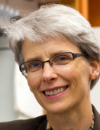 Nancy L. Allbritton is the Frank and Julie Jungers Dean of the College of Engineering and Professor of Bioengineering at the University of Washington in Seattle. |
Daniel ChiuA. Bruce Montgomery Professor of Chemistry, University of Washington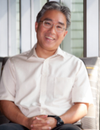 Daniel T. Chiu is currently the A. Bruce Montgomery Professor Chemistry, Endowed Professor of Analytical Chemistry, and Professor of Bioengineering at the University of Washington. He is a member of the University of Washington’s Center for Nanotechnology, Neurobiology and Behavior Program, and the Cancer Consortium of the Fred Hutchinson Cancer Research Center. He has authored more than 180 publications and is the inventor on over 40 issued patents. Dr. Chiu obtained a B.A. in neurobiology and a B.S. in chemistry at the University of California, Berkeley in 1993, and a Ph.D. in chemistry from Stanford University in 1998. |
John T McDevittProfessor, Division of Biomaterials, New York University College of Dentistry Bioengineering Institute John T. McDevitt now serves as a Full Professor within the Division of Biomaterials within the Department of Molecular Pathobiology at New York University, is a member of NYU’s Bioengineering Institute and participates as a distinguished faculty member in the NYU Department of Chemical and Biomolecular Engineering within the Tandon School of Engineering at NYU. Prior to this time, McDevitt served as the Chair of the Department of Biomaterials at NYU, the Brown-Weiss Professor of Bioengineering/Chemistry at Rice University, the Director of the Gulf Coast Consortium on early Disease Detection within the Texas Medical Center and a Full Professor of Chemistry and Biochemistry at University of Texas at Austin. McDevitt completed his Ph.D. degree in Chemistry from Stanford University. |
Carl MeinhartProfessor, University of California-Santa Barbara Dr. Meinhart is a professor of Mechanical Engineering at the University of California – Santa Barbara. He completed his PhD and Postdoctoral work at the University of Illinois in June of 1995. At the University of Illinois, his research involved the investigation of turbulent flows. Since coming to UCSB in 1996, his research has focused on developing microfluidic devices and exploring their fundamental transport mechanisms. Dr. Meinhart is a fellow of the American Physical Society. Prof. Meinhart’s group pioneered the concept of free-surface microfluidics. In collaboration with Prof. Martin Moskovits’ group in chemistry at UCSB, and their respective students, they have developed a novel technique for measuring gas-phase chemicals with very high sensitivity. |
Dominique PV de KleijnProfessor Experimental Vascular Surgery, Professor Netherlands Heart Institute, University Medical Center Utrecht, The Netherlands Prof. Dr. Dominique PV de Kleijn is molecular biologist and chemist and professor of Exp. Vascular Surgery at UMC Utrecht and professor at the Netherlands Heart Institute. From 2012 to 2016, he was Research Professor of Surgery at NUS/NUHS and preclinical director of the Cardiovascular Research Institute (CVRI) Singapore. He was until 2016 professor of Cardiovascular Immunology and co-chair of Experimental Cardiology at UMC Utrecht. Since 1997 he is coordinating cardiovascular research from basic science, animal myocardial infarction and atherosclerotic studies (pig and sheep) towards clinical biobanking studies. His research interests are: The innate immune system in cardiovascular disease and atherosclerosis & Biomarkers predictive for primary & secondary events with a focus on plasma extracellular vesicles. He has more then 275 publications and a H-factor of 78. |
Lydia SohnAlmy C. Maynard and Agnes Offield Maynard Chair in Mechanical Engineering, University of California-Berkeley Lydia L. Sohn received her A.B. (Chemistry and Physics, 1988), M.S. (Physics, 1990), and Ph.D. (Physics, 1992) from Harvard University. She was an NSF/NATO postdoc at Delft University of Technology and a postdoc at AT&T Bell Laboratories (1993-1995). Sohn was an Assistant Professor of Physics at Princeton University prior to joining the Mechanical Engineering Dept. at UC Berkeley in 20013. Her work focuses on developing quantitative techniques to probe single cells. Sohn has received numerous awards including the NSF CAREER, Army of Research Young Investigator Award, DuPont Young Professor Award, and a Bakar Fellowship. In 2014, she was one of five winners in the “Identifying Platform Technologies for Advancing Life Sciences Research” competition for her work on Node-Pore Sensing. Most recently, she was elected a Fellow of the American Institute for Medical and Biological Engineering. |
Steve SoperFoundation Distinguished Professor, Director, Center of BioModular Multi-Scale System for Precision Medicine, The University of Kansas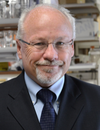 Prof. Soper is currently a Foundation Distinguished Professor in Chemistry and Mechanical Engineering at the University of Kansas, Lawrence. Prof. Soper also holds an appointment at Ulsan National Institute of Science and Technology in Ulsan, South Korea, where he is a World Class University Professor. He is also serving as a Science Advisor for a number of major worldwide companies. Prof. Soper is currently on the Editorial Board for Scientific Reports and Journal of Micro- and Nanosystems. |
Valérie TalyCNRS Research Director, Professor and Group leader Translational Research and Microfluidics, Université Paris Cité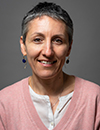 V. Taly is a CNRS research director and group leader of the Translational Research And Microfluidics team within the clinical oncology research unit MEPPOT (personalized medicine pharmacogenomics and therapeutic optimization) in the Cordeliers Research Center (university Paris Cité). Her team performs interdisciplinary researches aiming at developing and validating microfluidic tools for cancer research in close collaboration with clinicians and researchers in oncology and toxicology. Since 2008, she developed droplet-based digital procedures for Cancer diagnosis. Recently, her research has been dedicated to the clinical validation of droplet-based microfluidics for the non-invasive detection of Cancer biomarkers, the highlighting of new Cancer Biomarkers and the development of original tools and procedures for their detection with applications in personalized medicine, cancer recurrence detection and cancer diagnostics. She is co-founder of EMULSEO (2018) and METHYS DX (2021) start up companies. |
John WikswoGordon A. Cain University Professor, A.B. Learned Professor of Living State Physics; Founding Director, Vanderbilt Institute for Integrative Biosystems, Vanderbilt University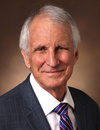 John Wikswo is the Gordon A. Cain University Professor at Vanderbilt University and is the founding Director of the Vanderbilt Institute for Integrative Biosystems Research and Education. Trained as a physicist, he received his B.A. degree from the University of Virginia, and his PhD. from Stanford University. He has been on the Vanderbilt faculty since 1977. His research has included superconducting magnetometry, the measurement and modeling of cardiac, neural and gastric electric and magnetic fields, and non-destructive testing of aging aircraft. His group’s current work on organ-on-chips focuses on the development of intelligent well plates that serve as perfusion controllers, microclinical analyzers, and microformulators; developing a blood-brain-barrier and a cardiac tissue construct on a chip; and integrating multiple organs to create a milli-homunculus from coupled organs on chips. As a tenured member of the Departments of Biomedical Engineering, Molecular Physiology & Biophysics, and Physics & Astronomy, he is guiding the development of microfabricated devices, optical instruments, and software for studying how living cells interact with each other and their environment and respond to drugs, chemical/biological agents, and other toxins, thereby providing insights into systems biology, physiology, medicine, and toxicology. He has over 250 publications, is a fellow of seven professional societies, and has received 39 patents. |




